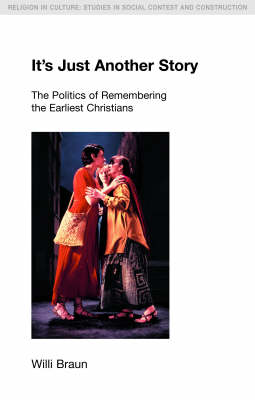With one eye on the motives for and the manners of the production of early Christian narratives of Christian beginnings, and the other eye on modern scholarly and popular motives for and manners of appropriating the early Christian narratives, this book offers a bifocal meditation on the historiographical practices and problems entailed in the concept of Christian "origins". The author begins by examining why and how early and modern Christian "archive fever" (Derrida) converts the mythic notion of "origin" to the historical concept of "beginnings" and that sees in "beginnings" an endlessly redeeming past. The gospel of Mark is an elaborated example of "just another story" that, though it really is just another story, perhaps not a very good one by any accounting, is exalted to the status of a charter narrative that is read as the true story of how it truly was in the past. The story of Jesus, fixed just so by elaborate techniques of producing stories that present themselves as histories, is a second example of early and modern past-making for purposes that are not in the past but for which the past as a constructed ideal is valuable currency in the contest for social and political identity and power in the present. A third example of a constructed past as a fix for modern ills is evident in modern attempts to find in the beginnings of Christianity an ideology that favoured a set of practices that were emancipatory for women. The author exposes this reading as "wishful thinking" historiography and explains why such historiography is compelling both in the academy and in popular thinking. In the final chapter the author engages current historiographical theories in order to explain why the Christian past is like a dead ancestor who refuses to stay dead.
- ISBN10 184553008X
- ISBN13 9781845530082
- Publish Date 1 December 2013
- Publish Status Out of Print
- Out of Print 3 February 2017
- Publish Country GB
- Imprint Equinox Publishing Ltd
- Format Hardcover
- Pages 160
- Language English
